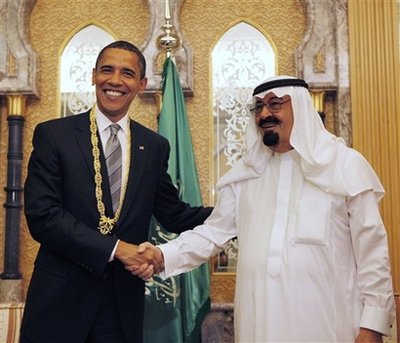
Last week in Saudi Arabia, King Abdullah made the announcement that women will have the ability to vote and participate in all subsequent elections. If typical spectators only examined the reactions from women in Saudi Arabia, they might get the idea that this decision transforms the lives of the country’s female population. Numerous women triumphantly asserted that this is a “great leap forward” for their demographic, boasting that King Abdullah has provided them with a “new voice.” Soundbites, tweets and status updates aside, the level of optimism displayed by Saudi women, although quite inspirational, does not seem to be rooted in reality.
Intrinsically, Saudi Arabia is an absolute monarchy. King Abdullah, and the institutions through which he asserts himself, maintains strict control over the country regardless of votership or political participation. Women’s vote will make no difference over policy. In fact, it can be reasoned that by allowing women access to vote for the one party in power (as political opposition is forbidden), the regime is only further entrenching themselves into the nation’s political structure. This structure, seamlessly intertwined with the proscribed social practices of the Wahabi sect, propagates, reproduces and mandates patriarchal domination in every fabric of Saudi life. Even if women have the right to vote or nominate themselves in elections, cultural constructs dictate that women should not be engaged in the political process. Thus, it would be safe to assume that friends and family would deter women voting for fear that the social ramifications of doing so might be too jeopardizing.
It is an unfortunate reality that Saudi women must take these consequences into account when making decisions. But they are real, and they are austere. Not only are females not allowed to represent themselves or hold places in a court of law, but a man’s vote equals twice their own, and verdicts are given by a panel of male judges. Females are treated as guilty until proven innocent in a court of law under a legal system that rationalizes and promulgates female inferiority. Under the eyes of the law, women are no more to men than what minors are to adults in America-subject to the control of their guardians.
This comes as no surprise from the country that ranked 129 out of 134 on the Global Gender Gap report in 2010. Stated simply, it would be easier to create a list of things that woman can’t do in Saudi Arabia than a list of things that they can. The fact that women aren’t allow to operate motor vehicles in Saudi Arabia allows men to further assert influence and domination over female voting practices, as they are dependent upon a male guardian for transportation to a voting booth. Accordingly women can only work, travel and be educated with the approval of their male guardians, an approval that is not so readily given as it is a commonly held belief that the woman’s place is in the household.. Even if permission is granted, women must submit to purdah, which necessitates a sharp separation between the world of the man and the woman. These worlds are so distinctly separated that women must use alternate facilities when leaving the house, most of which are of inferior quality to designated male facilities. Additionally, women must adhere to the strictest dress codes forwarded under Sharia law when exiting their house, combining a hijab (head covering) and an abaya (full black cloak) to cover all the body but the eyes.
Good thing that women can now vote, because I almost assumed that Saudi Arabia was participating in horrifically misogynistic practices. It is also nice to know that King Abdullah is on the side of women, as he stated last week that his administration “refuses to marginalize the role of women in Saudi society.” With the unparalleled amount of chauvinism embedded within the political and social infrastructure of his country, King Abdullah may not even allow this “progressive” law to come to fruition. He has been promising change since 2005, and just announced a law that will come into effect in 2015. The ten-year gap between assurance and result does not inspire much confidence in the leader who, for praising reform, has been quite resistant to change. In 2008 the Association for the Protection and Defense of Women’s Rights in Saudi Arabia was cautioned that there would be repercussions for openly protesting and assembling against its current practices. Although he wants to present himself to the public as an integrationist, King Abdullah will only allow women “rights” that directly benefit him, disallowing, and possibly further intimidating those that campaign for true integration, equality, or mobility.
So, how much has granting women the right to vote changed the political and social landscape of Saudi Arabia? Less than twenty-four hours after King Abdullah made the announcement, Amnesty International reported that a Saudi woman was sentenced to a severe flogging for simply getting behind the wheel of a car. Corporeal punishment does not seem indicative of progress, beautifully illustrating the arbitrary nature of this recent decision to give women the vote. It is appeasement at best, insult to injury at worst and a symbolic gain accompanied by nothing substantive. These issues extend far beyond the ballot box, and cannot be solved by simple voting measures. It took women in the United States nearly fifty years to gain their basic rights after they were granted the right to vote, and the wait in Saudi Arabia will be immeasurable in comparison. If the Arab Spring has taught us one thing, it’s that authoritarianism can be overcome with coordinated efforts amongst a population. But as Saudi Arabia will teach us, overcoming cultural entrenchment can be a lot more problematic. •









